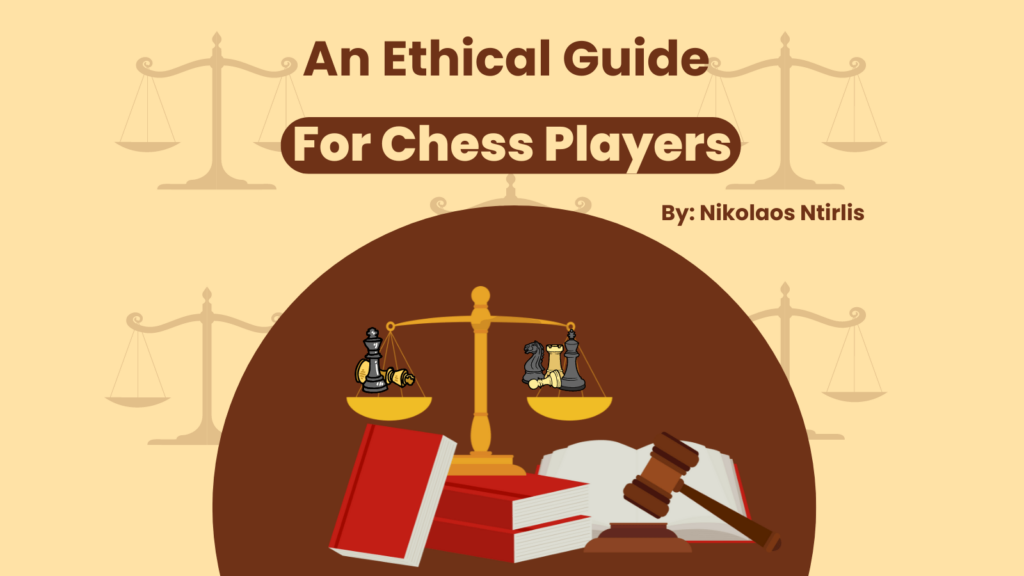The chess world was recently shaken by the expulsion of Grandmaster Kirill Shevchenko from the 2024 Spanish Team Championship, following allegations of unethical behavior. This incident not only stirred controversy but also brought to light a critical issue that affects not just the world of chess but life as a whole—ETHICS
As chess enthusiasts, we are drawn to the brilliance of top players, often marveling at their calculated strategies and mastery of the game. But moments like this serve as a reminder that even the brightest careers can be tarnished by greed and the pursuit of shortcuts. The choice between hunger for success and the temptation of unethical behavior is a fine line that every chess player, from amateurs to elite grandmasters, must navigate carefully.
The Importance of Ethics in Chess
Ethics and integrity are the foundation of long-term success in chess. Every move on the board is scrutinized, just as the actions of top players are observed by fans, peers, and aspiring young talents. Players are not just competing for personal glory; they are also role models for the next generation of chess players. When a top professional succumbs to unethical behavior, the ripple effect is felt throughout the chess community.
But what are the essential insights that chess players, both amateur and professional, can learn from incidents like this?
Key Insights
Lead by Example
Top players hold a unique position of influence. Their actions, on and off the board, are observed by fans and younger players alike. By consistently upholding the highest standards of sportsmanship, they set a powerful example for others to follow. Integrity and fair play are essential in maintaining the respect and trust of the chess community.
Sustainable Growth Over Quick Wins
In competitive chess, much like in life, there are no shortcuts to greatness. The temptation to take a quicker path to success may be strong, but it often leads to damaging consequences. A player’s reputation, much like their chess rating, is hard-earned but easily lost. Trust is built slowly over time, and once broken, it can be nearly impossible to restore.
The lesson here is clear: focus on long-term, sustainable growth. Master the game through hard work, dedication, and continuous learning. Short-term victories gained through unethical means will eventually unravel, while ethical play leads to enduring success and respect.
Accountability and Transparency
Just as in business or life, chess requires accountability. Ethical practices on the chessboard—whether in the form of adhering to tournament rules or displaying good sportsmanship—are essential in maintaining the integrity of the game. The beauty of chess lies in its fairness and transparency, where every player, regardless of rank, competes on equal terms.
Following the rules and respecting the game ensures that chess remains a noble pursuit. It’s not just about winning; it’s about winning with honor.
The Impact of Role Models in Chess
The actions of top chess professionals influence the behavior of those who aspire to follow in their footsteps. When young players see unethical conduct from their idols, they may begin to question the value of playing fair. On the other hand, when they witness integrity, transparency, and accountability from their chess heroes, it instills in them the importance of ethics and hard work.
The chess community must strive to foster a culture of ethics and fair play, one that emphasizes the importance of doing the right thing—both on and off the board. Moments like the Shevchenko incident serve as a wake-up call, reminding us all that the legacy of a chess player is not just about the games they win, but also the values they uphold.
My Perspective
As both a chess player and a business strategist, I’ve seen firsthand the importance of ethics in achieving lasting success. The moves we make on the chessboard mirror the decisions we take in life and business. By choosing integrity over shortcuts and prioritizing the long game, we not only achieve personal success but also set an example for others to follow.
In both chess and business, true greatness is built on a foundation of fair play, accountability, and respect for the rules. It’s these values that create a legacy worth leaving behind.
https://www.chess.com/blog/GMSzabo/greed-vs-hunger-ethics-in-chess-and-the-legacy-of-fair-play



